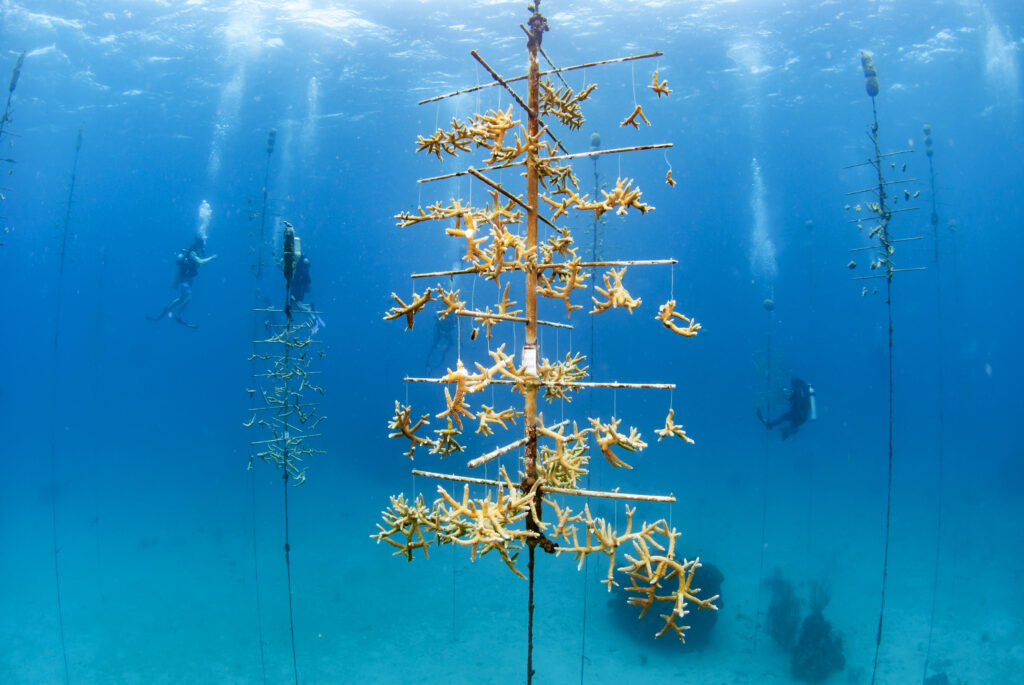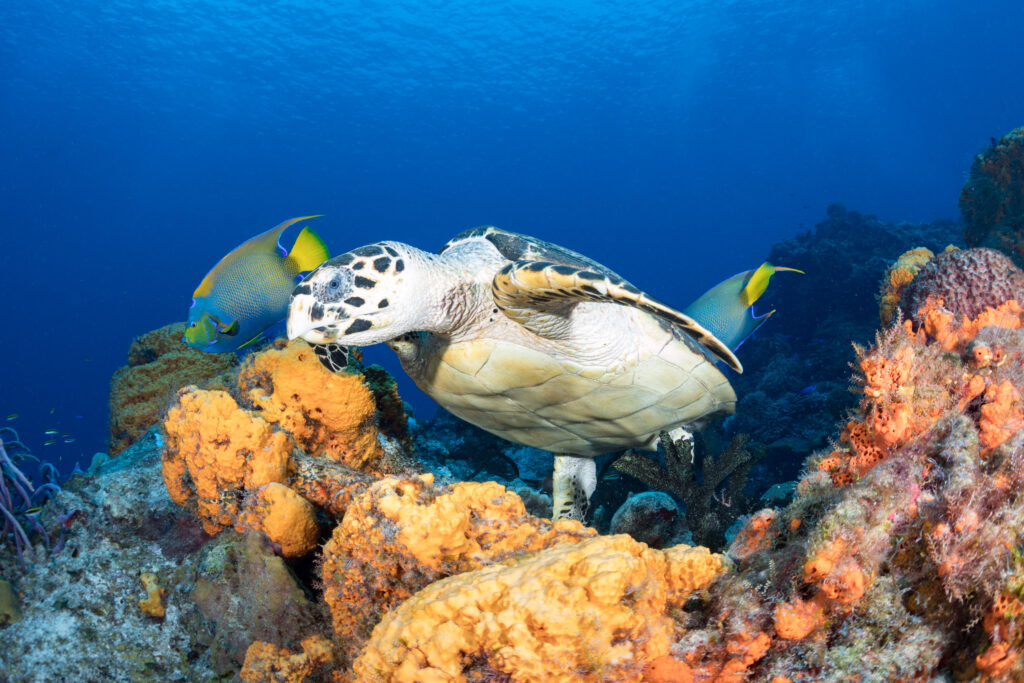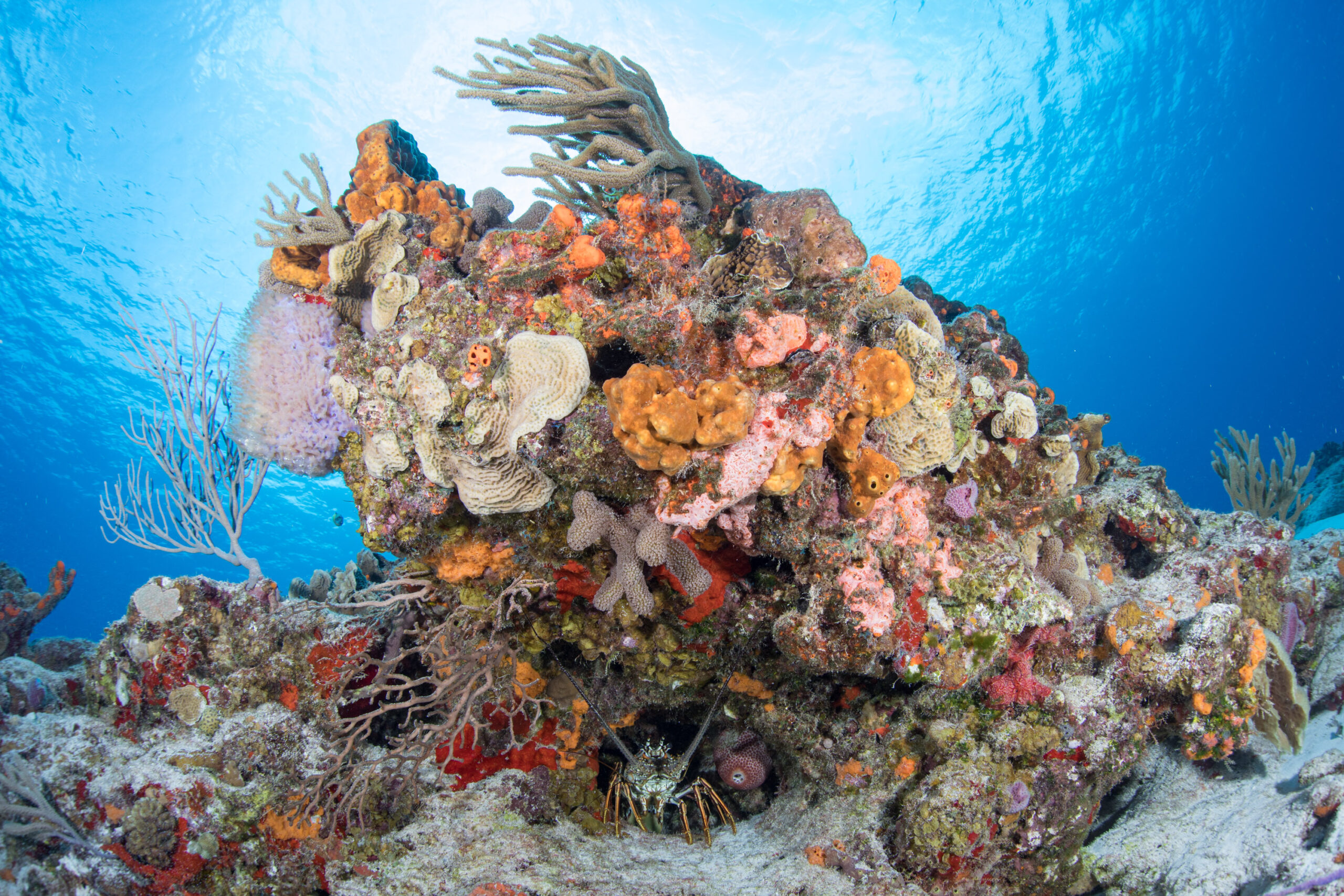Why don’t we focus on coral restoration? It’s a question we, at CORAL, have been asked time and time again.
We address overfishing, minimize water pollution, support local communities, and lead cutting-edge research on coral adaptation to climate change…but we don’t generally work on coral restoration projects. Our decision comes down to the fact that coral restoration alone is unlikely to save reefs from our planet’s warming temperatures if we don’t reduce local stressors.
Why Coral Restoration Likely Won’t Be Enough to Save Coral Reefs
According to a study published in Ecological Applications and co-authored by CORAL scientists, popular coral restoration techniques would be unlikely to protect coral reefs from climate change. The research used innovative models to explore the response of coral reefs to restoration projects that propagate corals and outplant them into the wild. Additionally, the study evaluated the effects of outplanting corals that have been genetically adapted to warmer temperatures, sometimes called ‘super corals,’ to reefs experiencing climate change as a way to build resilience to warming.
The models found that neither approach was successful at preventing a decline in coral coverage in the next several hundred years due to climate change, and that selectively breeding corals to be more heat tolerant will only lead to benefits if conducted at a very large scale over the course of centuries. Even then, the benefits won’t be realized for 200 years. In the models, restoring areas with corals that haven’t been selected to be more heat tolerant was ineffective at helping corals survive climate change except at the largest supplementation levels explored.

Though coral restoration can have some benefits, like educating communities about reef ecosystems or replenishing an area that has been hit by a storm or suffered direct physical damage, more scientists are speaking up about the limitations of conservation approaches that focus solely on restoration.
“Our previous research shows that corals have the best chance of adapting to the effects of climate change, like warming ocean temperatures, if there is high genetic diversity and if habitat is protected from other local stressors.” says Dr. Lisa McManus, the study’s co-author and a CORAL partner. “Repopulating a coral reef with corals that have similar genetic makeups could reduce an area’s natural genetic diversity, and therefore make it harder for all corals to adapt to climate change.”
Restoration alone is unlikely to save coral reefs from warming waters—and moreover, the techniques are expensive and would need to be performed at an unrealistically large scale in order to be effective. Additionally, coral restoration projects can only be successful if local threats to reefs are managed effectively: otherwise, you’re utilizing resources to outplant corals into an area where they will soon be threatened by poor water quality or overfishing.
Reducing Marine Threats and Advocating for Climate Action
CORAL scientists agree that corals have the best chance of surviving climate change with effective reef management strategies that focus on protecting natural genetic diversity. By doing that, we can create the conditions that corals need to be able to adapt to climate change on their own, so long as emissions are also reduced. That’s why we invest in projects that will keep coral reefs healthy and protect a wide-range of diverse coral reef networks.
For example, in Hawai’i and in the Western Caribbean region, we address overfishing, protect marine habitats, invest in wastewater treatment infrastructure, mobilize communities to save their coral reefs—and more. And on a global scale, we advance innovative technologies, like the Allen Coral Atlas, to help stakeholders better understand how to factor natural evolutionary processes into their conservation efforts.

By reducing major threats, like overfishing and water pollution, we are keeping coral reefs healthy at the local level. We are also advocating for climate action and building worldwide partnerships and spreading awareness of how to create the necessary conditions for corals to adapt to climate change.
Dr. Helen Fox, Conservation Science Director
We know we have a long road ahead. But by focusing on the most effective conservation strategies, we have a fighting chance to save coral reefs—some of the ocean’s most valuable marine ecosystems. That’s why we focus on projects that will keep our existing reefs healthy and able to adapt to climate change.

